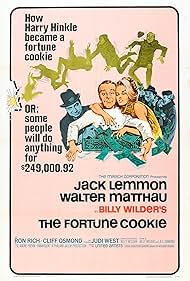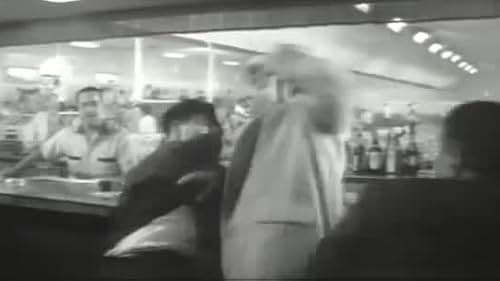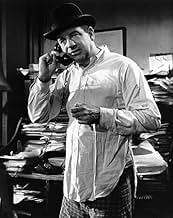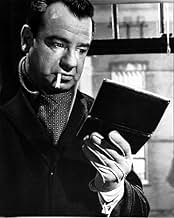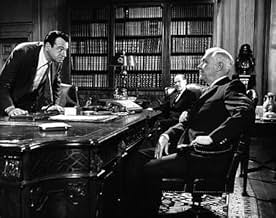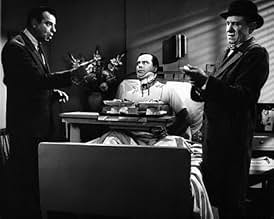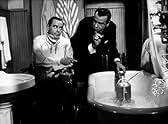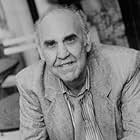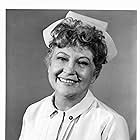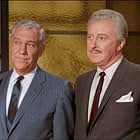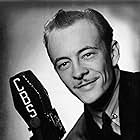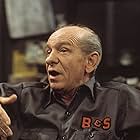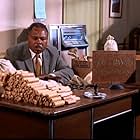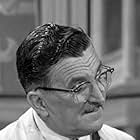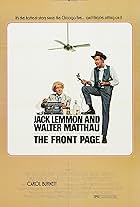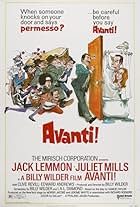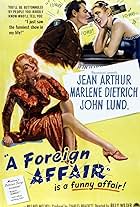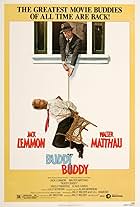A crooked lawyer persuades his brother-in-law to feign a serious injury.A crooked lawyer persuades his brother-in-law to feign a serious injury.A crooked lawyer persuades his brother-in-law to feign a serious injury.
- Won 1 Oscar
- 3 wins & 5 nominations total
- Director
- Writers
- All cast & crew
- Production, box office & more at IMDbPro
Storyline
Did you know
- TriviaProduction was halted for weeks after Walter Matthau had a heart attack. He had slimmed from 190 to 160 pounds by the time filming was completed and wore a heavy black coat to conceal the weight loss.
- GoofsDuring the football game in which Harry is injured, the Browns are playing the Minnesota Vikings. On Boom-Boom's punt return, however, the opponents are the Philadelphia Eagles.
- Crazy creditsThe end credits conclude with a thank you message to the players and management of the Cleveland Browns, and the National Football League for their cooperation.
- Alternate versionsThe 1997 VHS release showed black and white versions of the 1994 United Artists variant and MGM logo at the start and end of the movie respectively.
- SoundtracksYou'd Be So Nice to Come Home To
Music and lyrics by Cole Porter
Sung by Judi West
Also strains played throughout the movie
Featured review
When THE FORTUNE COOKIE came out in 1965 it proved a remarkably successful comedy. Of course it was directed by Billy Wilder, still at or near the height of his film career with a string of great successes from THE MAJOR AND THE MINOR, THE LOST WEEKEND, and SUNSET BOULDVARD through SOME LIKE IT HOT and THE APARTMENT. Of course there had been less successful films for Wilder, most notably THE EMPEROR WALTZ and THE BIG CARNIVAL, but most of his films were widely respected by critics and the public. And when he made it in 1965 it was to star Jack Lemmon, who had demonstrated his comic qualities in three other Wilder films: SOME LIKE IT HOT, THE APARTMENT, and IRMA LA DOUCE. So the public was quite interested in this film, which was to tear into the American habit of suing for injuries, and into shyster lawyers. In fact, the screenplay was originally supposed to be MEET WHIPLASH WILLY, the final name of the film when shown in England.
What surprised many people was the casting of Walter Matthau as "Whiplash Willie" Gingrich, the shyster brother-in-law to Lemmon's Harry Hinkle. Matthau was a widely respected actor, with great stage experience, but his performances in movies had been mostly as villains. From the whip happy tavern keeper in THE KENTUCKIAN, to the Machiavellian government adviser in FAIL SAFE Matthau usually played unlikeable sorts. There were some exceptions. In A FACE IN THE CROWD he is one of the television people who assist Lonesome Rhodes (Andy Griffith) on his way up, but who are appalled at the monster they create. When, at the end of the film, Griffith is starting to think of how to overcome the huge gaffe he created over the airwaves that have sent his career into the dumpster, it is Matthau (a terrific figure of decency here) who tells Griffith that he won't be coming back, but will be lucky to be remembered in a few years as a has-been. But A FACE IN THE CROWD was a rarity for Matthau. If he played comedy it was as a villain, most chillingly in CHARADES as Mr. Bartholemew. In his scenes as an embassy official he had some good comic bits, like when he offers a cigarette to Audrey Hepburn, and she takes two puffs and puts it out - Matthau is put out by this waste of one of his pricey cigarettes!
It is Matthau's appearance in THE FORTUNE COOKIE that changed his public persona and his career. He went to town as Whiplash Willy, threatening to sue the United Fruit Company for failing to put a printed warning on their bananas after Howard McNear fell and broke his pelvis tripping on one. His careful manipulation of brother-in-law Lemmon/Hinkle, his calculating in how to force a major law firm to surrender unconditionally in his demands, his snide comments about great lawyers of the past (Lincoln, Darrow), all build up a to a great introductory performance. It really showed the Matthau that the public would grow to know - a cynical type who could make others (especially the more decent Lemmon) do what he wanted them to. He would also be quick to get into deeply pseudo-intellectual speeches, voicing his opinions and points of views. It was the Matthau who would entertain movie audiences for the next three decades. As a sign of his success in finding his persona, Matthau won the Best Supporting Oscar for THE FORTUNE COOKIE.
Lemmon recommended Matthau to Wilder, who was pushing either Frank Sinatra or Jackie Gleason. It is quite hard to imagine either the Chairman of the Board or the Great One as effective as Matthau. But I have long wondered if Wilder and Lemmon had had someone else in mind, someone who was no longer available. The Hinkle - Gingrich relationship was a close one due to their family relationship, and Wilder certainly had discussed the issue of the casting with Lemmon. Up to 1961, Lemmon had appeared, most often, with one actor in the movies - in comedies. He appeared in BELL, BOOK, and CANDLE, IT STARTED WITH JANE, and OPERATION MAD BALL with his close friend Ernie Kovacs. Lemmon had been so close to Kovacs that he appeared (in the disguise of a monkey suit) as one of the Nairobi Trio. There are some lines in THE FORTUNE COOKIE that sound ready made for Kovacs - for example, when he writes a figure down as a settlement figure, and when the other lawyers make their counter-offers Matthau repeats it each time, looks at the paper, and says, very quietly, "That isn't it!" One can easily see Kovacs saying the same thing the same way.
If, as I suspect, THE FORTUNE COOKIE was an idea of Wilder's and Diamond's for a few years, it is just possible that Lemmon suggested Kovacs for the role of Gingrich. But after Kovacs died in a car accident in 1962, Lemmon had to find another actor of similar type. And then he noticed Matthau, who in 1965 was well received for his performance in THE ODD COUPLE on Broadway. Kovacs' bad luck may very well have been Matthau's good luck.
Today we think of the Lemmon-Matthau partnership as really based on their films with Wilder. They did four films with Wilder, but after THE FORTUNE COOKIE it was their joint appearance in the film version of THE ODD COUPLE directed by Gene Saks that made the partnership viable. Otherwise it might have seemed a flash in the pan. THE ODD COUPLE was to prove that the chemistry between the actors did not solely defend on the artistry of Wilder.
What surprised many people was the casting of Walter Matthau as "Whiplash Willie" Gingrich, the shyster brother-in-law to Lemmon's Harry Hinkle. Matthau was a widely respected actor, with great stage experience, but his performances in movies had been mostly as villains. From the whip happy tavern keeper in THE KENTUCKIAN, to the Machiavellian government adviser in FAIL SAFE Matthau usually played unlikeable sorts. There were some exceptions. In A FACE IN THE CROWD he is one of the television people who assist Lonesome Rhodes (Andy Griffith) on his way up, but who are appalled at the monster they create. When, at the end of the film, Griffith is starting to think of how to overcome the huge gaffe he created over the airwaves that have sent his career into the dumpster, it is Matthau (a terrific figure of decency here) who tells Griffith that he won't be coming back, but will be lucky to be remembered in a few years as a has-been. But A FACE IN THE CROWD was a rarity for Matthau. If he played comedy it was as a villain, most chillingly in CHARADES as Mr. Bartholemew. In his scenes as an embassy official he had some good comic bits, like when he offers a cigarette to Audrey Hepburn, and she takes two puffs and puts it out - Matthau is put out by this waste of one of his pricey cigarettes!
It is Matthau's appearance in THE FORTUNE COOKIE that changed his public persona and his career. He went to town as Whiplash Willy, threatening to sue the United Fruit Company for failing to put a printed warning on their bananas after Howard McNear fell and broke his pelvis tripping on one. His careful manipulation of brother-in-law Lemmon/Hinkle, his calculating in how to force a major law firm to surrender unconditionally in his demands, his snide comments about great lawyers of the past (Lincoln, Darrow), all build up a to a great introductory performance. It really showed the Matthau that the public would grow to know - a cynical type who could make others (especially the more decent Lemmon) do what he wanted them to. He would also be quick to get into deeply pseudo-intellectual speeches, voicing his opinions and points of views. It was the Matthau who would entertain movie audiences for the next three decades. As a sign of his success in finding his persona, Matthau won the Best Supporting Oscar for THE FORTUNE COOKIE.
Lemmon recommended Matthau to Wilder, who was pushing either Frank Sinatra or Jackie Gleason. It is quite hard to imagine either the Chairman of the Board or the Great One as effective as Matthau. But I have long wondered if Wilder and Lemmon had had someone else in mind, someone who was no longer available. The Hinkle - Gingrich relationship was a close one due to their family relationship, and Wilder certainly had discussed the issue of the casting with Lemmon. Up to 1961, Lemmon had appeared, most often, with one actor in the movies - in comedies. He appeared in BELL, BOOK, and CANDLE, IT STARTED WITH JANE, and OPERATION MAD BALL with his close friend Ernie Kovacs. Lemmon had been so close to Kovacs that he appeared (in the disguise of a monkey suit) as one of the Nairobi Trio. There are some lines in THE FORTUNE COOKIE that sound ready made for Kovacs - for example, when he writes a figure down as a settlement figure, and when the other lawyers make their counter-offers Matthau repeats it each time, looks at the paper, and says, very quietly, "That isn't it!" One can easily see Kovacs saying the same thing the same way.
If, as I suspect, THE FORTUNE COOKIE was an idea of Wilder's and Diamond's for a few years, it is just possible that Lemmon suggested Kovacs for the role of Gingrich. But after Kovacs died in a car accident in 1962, Lemmon had to find another actor of similar type. And then he noticed Matthau, who in 1965 was well received for his performance in THE ODD COUPLE on Broadway. Kovacs' bad luck may very well have been Matthau's good luck.
Today we think of the Lemmon-Matthau partnership as really based on their films with Wilder. They did four films with Wilder, but after THE FORTUNE COOKIE it was their joint appearance in the film version of THE ODD COUPLE directed by Gene Saks that made the partnership viable. Otherwise it might have seemed a flash in the pan. THE ODD COUPLE was to prove that the chemistry between the actors did not solely defend on the artistry of Wilder.
- theowinthrop
- Jun 15, 2005
- Permalink
- How long is The Fortune Cookie?Powered by Alexa
Details
- Release date
- Country of origin
- Language
- Also known as
- Der Glückspilz
- Filming locations
- Cleveland, Ohio, USA(Roswell Hotel-opp. Hinkle's apt East 20th St between Euclid and Chester Avenues, now a part of the Cleveland State University campus.)
- Production companies
- See more company credits at IMDbPro
Box office
- Budget
- $3,705,000 (estimated)
- Runtime2 hours 5 minutes
- Color
- Aspect ratio
- 2.35 : 1
Contribute to this page
Suggest an edit or add missing content

